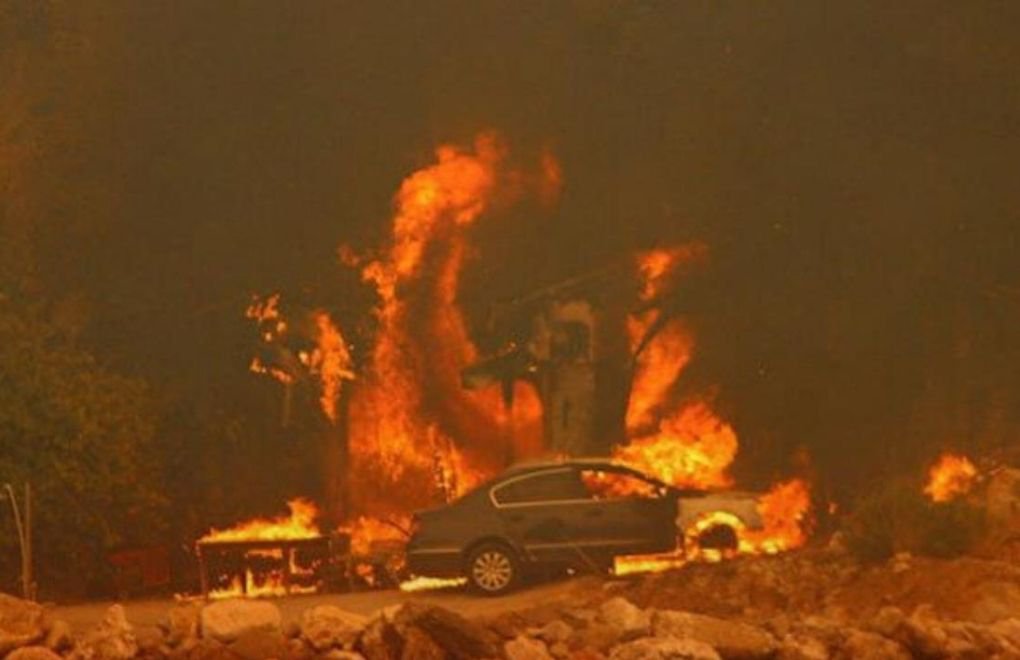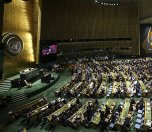* From the forest fires in Bodrum
Click to read the article in Turkish
Davut Çetin, the Chair of Antalya Chamber of Commerce and Industry, says, "If Turkey does not ratify the Paris Climate Agreement by December 2021, it will have to pay the 'carbon tax' to be levied by the EU."
Noting that 'green transformation and green deal are among their most important issues, Çetin briefly makes the following remarks:
"Turkey now has to make a commitment to reduce the carbon emissions at a certain rate. We, as Turkey, signed the Paris Agreement in 2015 but it has not yet passed the Grand National Assembly. It needs to be ratified as soon as possible. Because a carbon tax will be introduced by the European Union (EU) in the upcoming days. Our exporters will have great trouble.
"There are talks about 30 to 50 dollars per ton, which means a burden of approximately 2 billion dollars on the exporters. In the meantime, it will also hinder our chance of competition there.
"For this reason, we need to bring it to Turkey's agenda as soon as possible and work on carbon emissions and to prevent the carbon tax.
"We have already been working on the green deal at the Union of Chambers and Commodity Exchanges of Turkey, but we now need to talk about it by bringing it to the agenda of the government.
"There are two important issues in Turkey. One of them is the digital transformation and the other is the green transformation. The latter has become as important as the former. We now need to work on these issues."
Why doesn't Turkey ratify the agreement?
Speaking to bianet about Turkey's failure to ratify the Paris Agreement, energy analyst Özgür Gürbüz previously recalled that there were 18 countries that had not yet ratified the agreement, underlining that "some of them had ratified it even though they had not signed it there."
Gürbüz made the following comments about the issue:
"Turkey says that it needs financial support to fulfill the commitments it made as part of the agreement. This is where everything comes to a deadlock. My comment on this is the following: Turkey, in fact, does not need additional funding to fulfil its current commitments.
"The country classification mentioned in the climate negotiations, namely the lists of Addendum 1 and Addendum 2 of the United Nations Framework Convention on Climate Change (UNFCCC) were important as they also set the obligations in Kyoto.
"For this reason, Turkey had long objected to its classification among the developed countries and had its special conditions accepted.
"According to the information shared on the website of the Ministry of Foreign Affairs, Turkey has become the only country which falls within the scope of the Addendum 1 in the UNFCCC negotiations, but is not an economy in transition and whose 'special conditions' have been accepted by the Conference of the Parties (COP). However, in the Paris Climate Agreement, the commitments made by countries, rather than the classifications in the Addendums 1 and 2, come to the fore.
"Despite the weak commitments it made while signing the agreement, Turkey can become a party to the Paris Agreement; no one can object to this. If the insufficiency of the targets becomes an issue, a negotiation may start and countries' levels of development may be discussed."
CLICK - 'Turkey saw 984 extreme weather events in 2020'
Paris Climate Agreement
The Paris Agreement is an agreement within the United Nations Framework Convention on Climate Change (UNFCCC), dealing with greenhouse-gas-emissions mitigation, adaptation, and finance, signed in 2016.
Its goal is to limit global warming to well below 2, preferably to 1.5 degrees Celsius, compared to pre-industrial levels.
To achieve this long-term temperature goal, countries aim to reach global peaking of greenhouse gas emissions as soon as possible to achieve a climate neutral world by mid-century.
As of November 2020, 194 states and the European Union have signed the Agreement. 187 states and the EU, representing about 79 percent of global greenhouse gas emissions, have ratified or acceded to the Agreement, including China and India, the countries with the 1st and 3rd largest CO2 emissions among UNFCCC members.
As of November 2020 the only countries with over 1 percent share of global emissions which are not parties are the United States, Iran, and Turkey.
As Russia signed the act ratifying participation in Paris Agreement, Turkey is now the only G20 country which has not yet ratified the agreement. (PT/SD)








